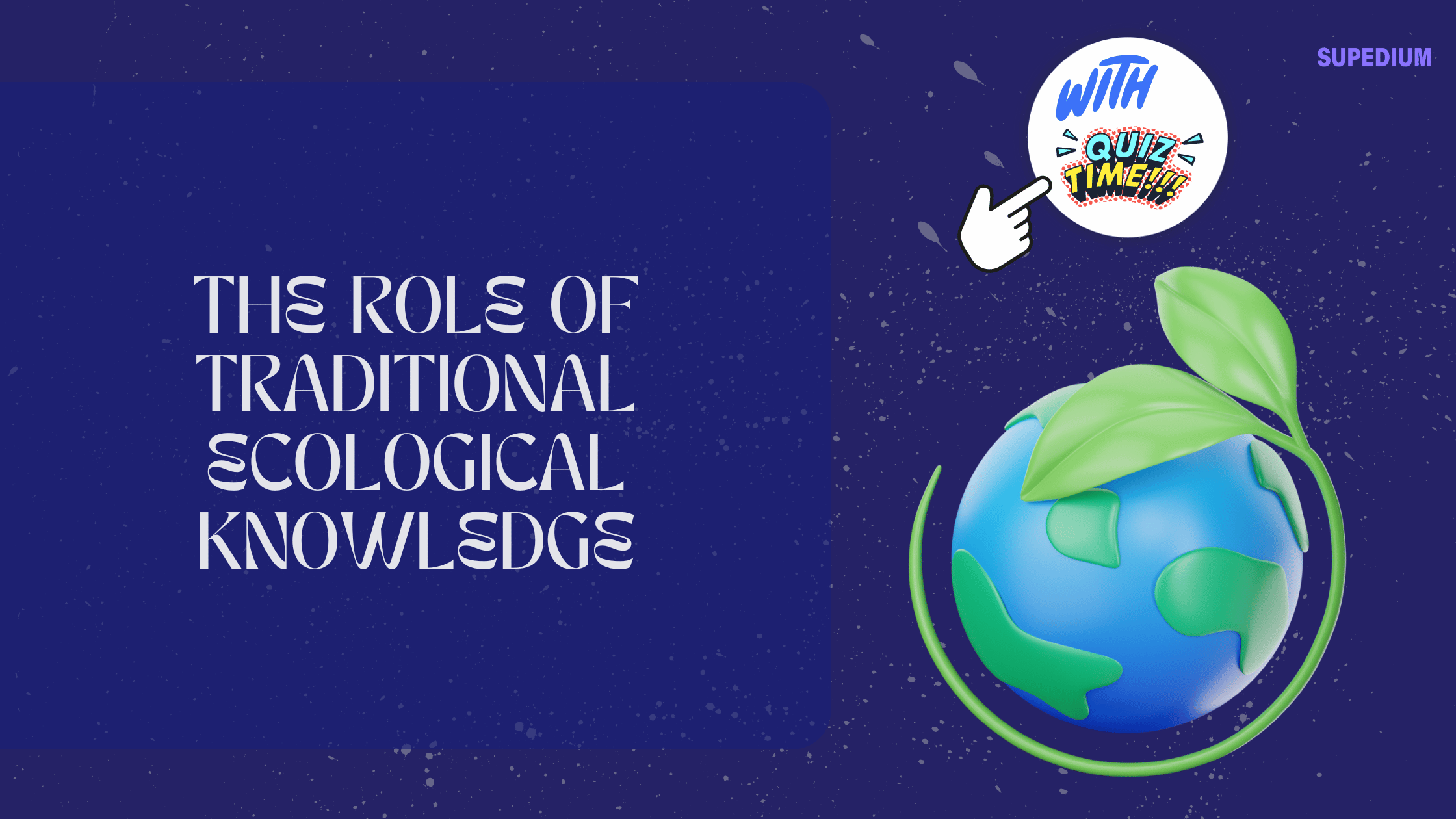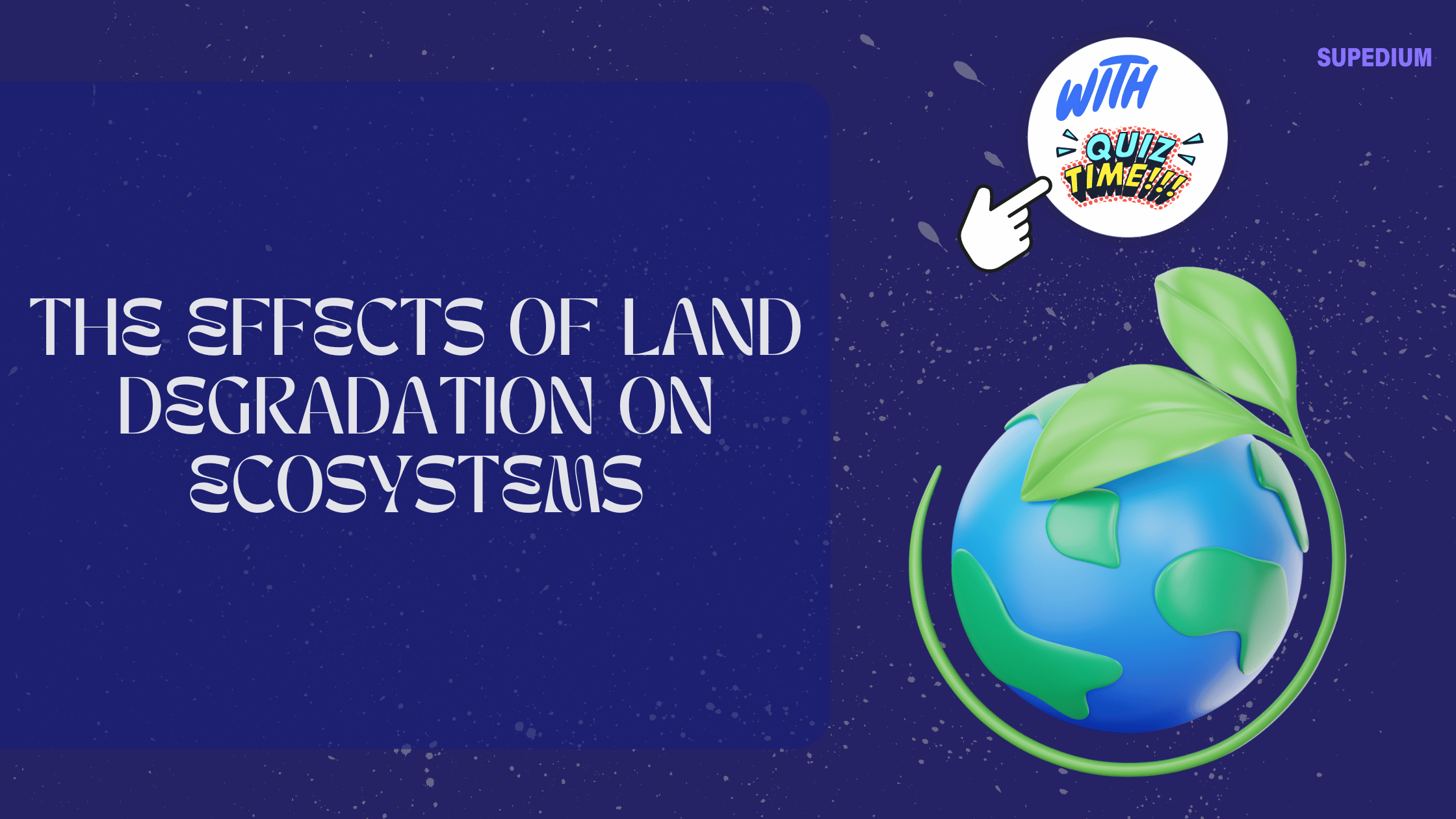Table of Contents
![]()
Introduction
Traditional Ecological Knowledge (TEK) represents the profound understanding and wisdom that indigenous and local communities have accumulated over generations about their environments. This knowledge system is based on long-term observation, experience, and cultural practices, offering a holistic view of ecological relationships and resource management. In today’s context, TEK plays a crucial role in promoting sustainable practices and conserving biodiversity.
Historical Context and Development
Origins of TEK
TEK has its roots in the deep connection that indigenous cultures have historically maintained with their natural surroundings. Indigenous peoples have developed intricate systems of knowledge about the ecosystems they inhabit, which are reflected in their traditional practices, stories, and cultural beliefs. This knowledge has evolved over millennia, shaped by direct experiences with the environment and refined through generations.
Transmission of Knowledge
Traditional knowledge is primarily transmitted through oral traditions and storytelling, where elders and knowledgeable members of the community pass on information to younger generations. Rituals and ceremonies also play a significant role in teaching ecological principles. Additionally, observation and hands-on experience are crucial methods through which TEK is learned and practiced.
Components of Traditional Ecological Knowledge
Ecological Principles
TEK encompasses a deep understanding of ecosystems, including species interactions and ecological processes. Indigenous knowledge often includes insights into seasonal changes, animal behavior, and plant cycles, reflecting a sophisticated grasp of environmental dynamics. This holistic approach contrasts with the often segmented view of modern Western science.
Resource Management
Traditional resource management practices are characterized by their sustainability. Indigenous communities have developed methods for harvesting resources in ways that maintain ecological balance and ensure the long-term availability of these resources. These practices include rotational hunting, controlled burning, and the use of conservation areas.
Cultural Practices and Beliefs
Cultural practices and beliefs are integral to TEK. Many indigenous cultures have spiritual connections with their environment, viewing natural elements as sacred. Rituals and ceremonies related to ecology reinforce these connections and guide sustainable practices, emphasizing respect for nature and the importance of maintaining balance.
Case Studies of TEK
North American Indigenous Communities
In Canada, First Nations communities have utilized TEK for managing fisheries, forests, and wildlife. For instance, the Gitga’at Nation’s traditional knowledge about salmon migration patterns has informed modern conservation strategies. Similarly, Native American tribes in the United States have long practiced fire management techniques that reduce the risk of large wildfires and promote ecological health.
Indigenous Knowledge in Oceania
In Australia, Aboriginal communities have employed TEK to manage land and resources through practices like fire-stick farming, which involves controlled burns to promote new plant growth and reduce the risk of large-scale fires. Pacific Islander practices, such as the use of traditional navigation techniques based on star patterns and ocean currents, demonstrate the sophisticated nature of their environmental knowledge.
African Traditional Ecological Knowledge
In East Africa, the Maasai people have developed methods for managing livestock and rangelands that prevent overgrazing and ensure the sustainability of their pastoral systems. In West Africa, traditional agroforestry systems integrate trees into farming practices, enhancing soil fertility and biodiversity while providing multiple benefits to local communities.
TEK in Modern Context
Integration with Western Science
The integration of TEK with Western science has proven beneficial in various research projects and conservation efforts. Collaborative research combines indigenous knowledge with scientific data, providing a more comprehensive understanding of environmental issues. For example, the use of TEK in monitoring biodiversity and managing protected areas has enhanced conservation outcomes by incorporating local insights.
Conservation Efforts
TEK has been instrumental in the management of protected areas, where indigenous practices and knowledge contribute to more effective conservation strategies. Successful examples include the incorporation of traditional fire management practices into national park management plans and the use of indigenous knowledge to guide marine conservation efforts.
Policy and Legal Framework
International agreements, such as the Convention on Biological Diversity (CBD) and the United Nations Declaration on the Rights of Indigenous Peoples (UNDRIP), recognize the importance of TEK. These frameworks support the integration of traditional knowledge into environmental policies and promote the rights of indigenous communities to their knowledge and practices.
Challenges and Criticisms
Intellectual Property and Cultural Appropriation
One of the major challenges facing TEK is the issue of intellectual property and cultural appropriation. There are concerns about the misuse and commercialization of traditional knowledge without proper consent or benefit-sharing with indigenous communities. Legal protections and ethical guidelines are needed to address these issues and respect the rights of knowledge holders.
Environmental Changes and TEK Adaptation
Climate change and other environmental pressures pose significant challenges to TEK. Traditional practices may need to adapt to new conditions, and there is a risk that some knowledge may be lost if it cannot be applied or transmitted effectively. However, many indigenous communities are actively adapting their practices to address these changes and build resilience.
Modernization and Loss of Knowledge
The modernization and globalization of societies have led to the erosion of traditional knowledge as younger generations migrate to urban areas and adopt new lifestyles. Efforts to document and preserve TEK are essential to prevent the loss of valuable ecological insights and practices.
Future Directions
Strengthening Partnerships
Building stronger partnerships between indigenous communities and researchers can enhance the integration of TEK into environmental management and policy. Collaborative projects should be designed to respect and uphold indigenous rights while benefiting from their knowledge and experience.
Education and Awareness
Incorporating TEK into educational curricula and raising awareness about its value can help foster a greater appreciation for traditional knowledge. Educating the public and policymakers about the importance of TEK in sustainability and conservation can lead to more inclusive and effective environmental strategies.
Technological Integration
Technology can play a role in documenting and sharing TEK while ensuring that traditional knowledge is respected and protected. Digital tools and platforms can facilitate the recording and dissemination of TEK, making it more accessible for future generations while preserving its integrity.
Conclusion
Traditional Ecological Knowledge offers invaluable insights into sustainable resource management and biodiversity conservation. By recognizing and integrating TEK with modern scientific approaches, we can enhance our understanding of environmental systems and develop more effective strategies for addressing global challenges. Respecting and preserving TEK is crucial for achieving long-term environmental sustainability and honoring the contributions of indigenous and local communities.






Be the first to comment